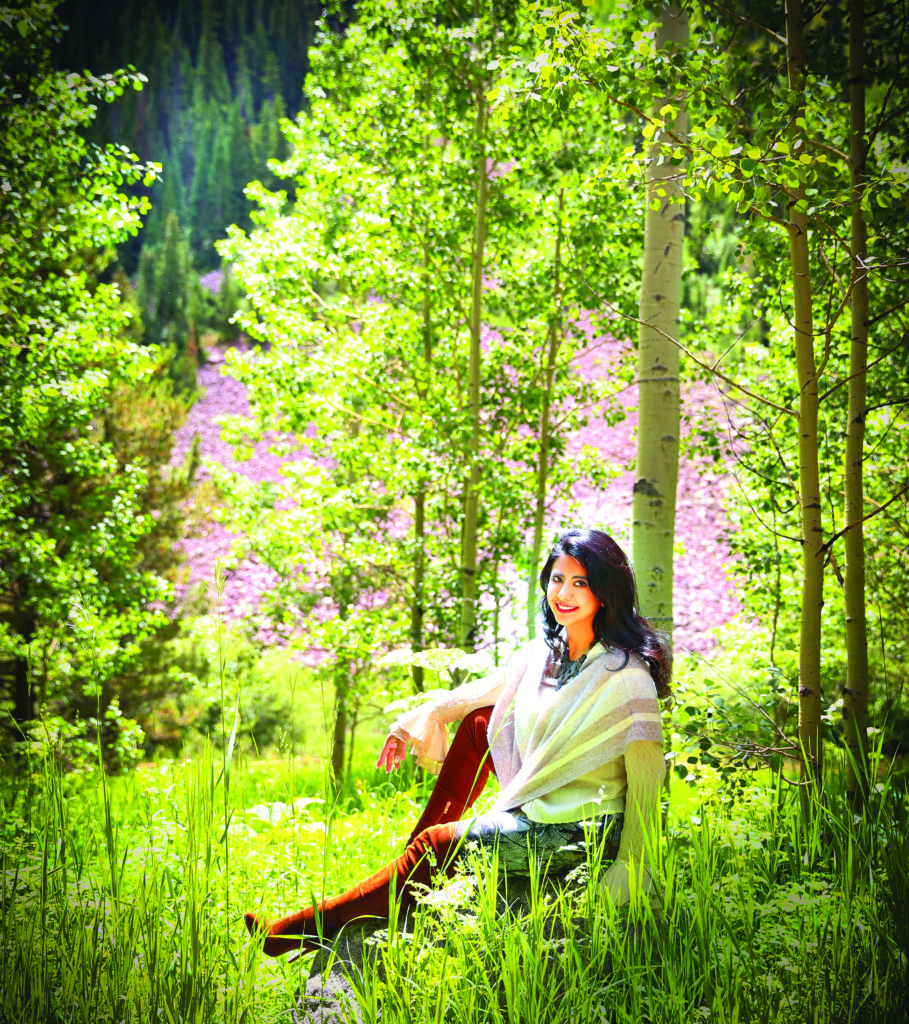
by Dimitri Ehrlich
In the world of mindfulness, much is made about the importance of being rather than doing. And while there is certainly tremendous spiritual value in the ability to sit still and be present, our world also hungers for those who are able to put the principles of compassion into action.
Mary Ann Thompson-Frenk is one of those people.
A philanthropist and one of Aspen’s most accomplished citizens, Thompson-Frenk has lived an unlikely life: She was born in 1977 at 7:11AM on Mother’s Day, in Mexico City, and brought to an orphanage. Adopted by the owners of the 7-Eleven chain, she grew up with great affluence, committed to making the world a better place. Today, Thompson-Frenk has a nonprofit that builds schools in developing nations. She’s spoken at the UN and addressed the House of Lords. The range of her activism is head-spinning.
“My father used to say, ‘The easiest job in the world is to be a critic. Anyone can criticize, but you be different. If you see a problem, ask yourself, “What can I do about it?” Then do it!,’” she says. “When I was a child, he would read Dr. Seuss’ The Lorax to me and look deep into my eyes as he read the last lines each night: ‘Unless someone like you cares a whole awful lot, nothing is going to get better, it’s not!’ Those are the things I try my best to continue, and in so doing, have discovered hope in the most surprising places.”
Growing up, Thompson-Frenk faced serious health issues, including debilitating seizures, migraines, asthma and a hearing loss, but she says these challenges have only helped her to develop greater empathy. “My hearing loss demanded that I develop a strong work ethic. Similarly, my father taught me some of my earliest lessons in meditation in order to cope with the pain or scariness of seizures, asthma and migraines. I’ve brushed close with death more than once, and experienced excruciating pain many times. These things serve as a good kick in the pants to evaluate life. For me, whatever you call that divine force, it’s not here to remove challenges, but rather to help us discover ourselves through the process of navigating them.”
Every decision is a spiritual one, she says. “I can’t change what I am, nor do I want to. But I can choose how I respond to the world around me and take conscious responsibility for my active role in co-creating with others, choosing to be what I call a ‘conscious cultural creator.’ Do I invest in a company that uses slave labor or do practice what I preach and respect human life enough to make less profit but not sell my soul? Do I hike under the Aspen trees seeing photosynthesis as a miraculous feat to behold, or do I forget while in a skyscraper that the glass windows I look out of are still just sand and neglect my acknowledgment of my interdependence with all things, and that I am no more or less than any other human being?”
Among other projects, Thompson-Frenk is currently working on a documentary called Stop the Hate, addressing inter-religious violence, and will soon launch a TV show with motivational speaker and author Ashley Berges. She is also writing Southland, a memoir. (And in her spare time, Thompson-Frenk is working toward ordination as an interfaith minister.)
Along with her husband, Joshua Raymond Frenk, she developed the term “social acupuncture” to describe how they allocate their resources to maximize positive impact. Her approach is based on the insight that finding sustainable solutions to women’s rights, LGBT rights, interfaith issues, health and medicine are all interconnected.
Thompson-Frenk’s organization, Memnosyne, is named after the Greek Goddess of memory and knowledge and has chapters in Palestine-Israel, Japan and Mexico and campuses in Mexico and Dallas.
“Today we are at a point between countries, religions and cultures where we will either walk over each other, or choose to collaborate consciously and evolve humanity,” she says. “If we allow ourselves to grow randomly, we will invite more misunderstanding, more war, and less innovation. But if we can choose to collaborate responsibly, and thereby become the conscious cultural creators of humanity’s future, that future is limitless.” memnosyneinstitute.org





